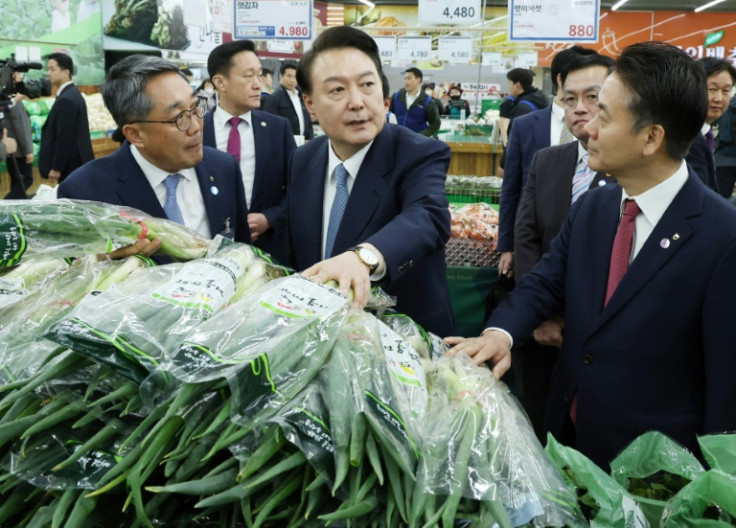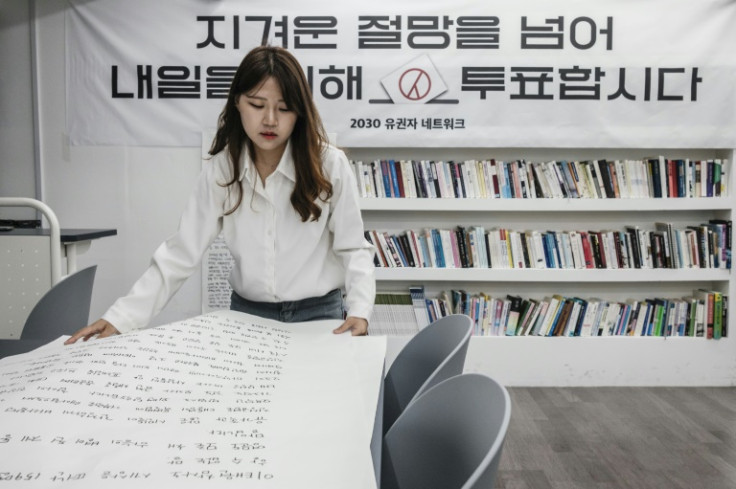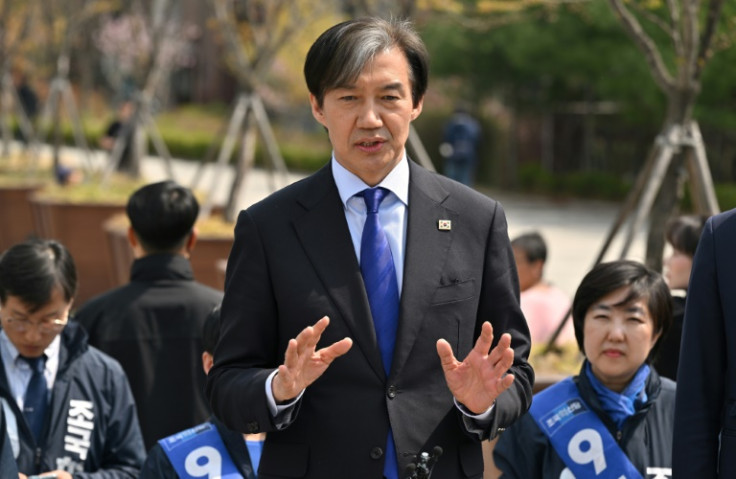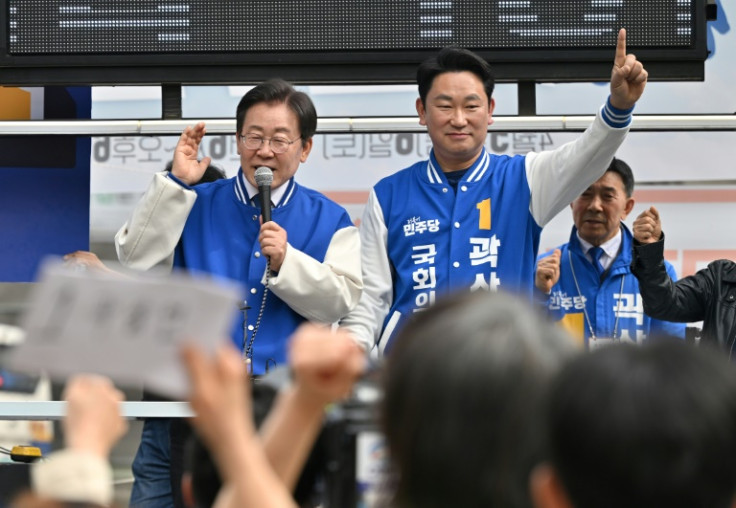
South Koreans head to the polls Wednesday in parliamentary elections seen as a referendum on President Yoon Suk Yeol after a polarising campaign focused largely on resentment, personalities -- and onions.
The outcome could see the opposition Democratic Party (DP) of Yoon's arch-rival Lee Jae-myung -- victim of a knife attack in January -- increase its majority, potentially by enough to try and impeach the president.
Yoon narrowly beat Lee to become president in 2022 and has taken a tough line with the nuclear-armed North while improving ties with Washington and former colonial occupier Japan.
But from the start he has been unpopular, with ratings often in the low 30s, and his party's lack of control of the National Assembly has stymied his socially conservative legislative agenda.
This includes planned healthcare reforms -- that have sparked a crippling strike by doctors -- and a pledge to abolish the ministry of gender equality.
He is unpopular as a result of the "lack of real progress on domestic political and economic issues," Andrew Yeo, a politics professor at the Catholic University of America, told AFP.
"Prices and inflation remain high, housing is expensive, and political polarisation remains high."
On Yoon's side are South Korea's shifting demographics, with voters aged 60 and older -- seen as more conservative -- now outnumbering those in both their 20s and 30s.
Younger voters are less likely to vote at all, with many saying they are put off by a political class dominated by older men who ignore their concerns.
Many say this was underlined by the 2022 Halloween crowd crush in Seoul that killed more than 150 mostly young people and was blamed on a litany of official oversights.
The younger generation is also struggling economically, with cut-throat competition in education, fewer job opportunities and sky-high housing costs.
The tone of the campaigning has also put many voters off, lacking in substantive policy debate and marked instead by shrill calls to "imprison" Lee or "punish" Yoon.
This has been accompanied by hate speech and disinformation online that experts worry could lead to more attacks like the one on Lee in January.
Capitalising on that environment has been a new party, Rebuilding Korea, led by former justice minister Cho Kuk, who is facing jail time for corruption charges that he denies.
While Cho Kuk's party is offering few substantive policies of its own, polling data showed it neck-and-neck with the PPP, meaning it could play kingmaker in the new parliament.
"I am going to make President Yoon first a lame duck, then a dead duck," Cho told AFP earlier this month.
Lee, 60, is also under investigation in a slew of cases, including for alleged bribery in connection with illicit transfers to North Korea. He denies all charges.
The DP favours a less hawkish approach towards Pyongyang, and Lee has made a number of pro-China remarks.
It has also latched onto a gaffe by Yoon last month about the "reasonable" cost of green onions -- a staple in Korean cooking that has soared in price -- that made him look out of touch.
The humble vegetable is now a common sight at DP rallies, and the National Election Commission even had to ban voters from bringing them to polling stations.
Yoon is also still reeling after hidden camera footage last year that showed his wife Kim Keon Hee accepting a $2,200 handbag. He insisted it was awkward for her to refuse.
Jeremiah Shim, 40, a pastor, said people in his congregation are finding it harder to get by because of rising food prices.
"A lot of people are not finding the economy an easy situation. Many people are having problems. Many people are hoping for change at this election," Shim told AFP.
"Many people think Mr Lee will be the next president... I support him. His history and life journey are very impressive. Many people think he can change our future. "










